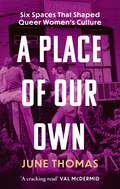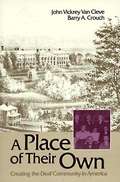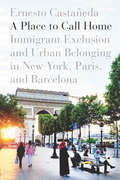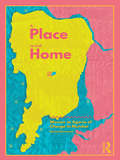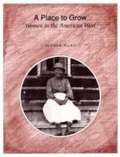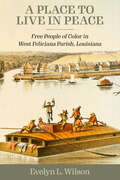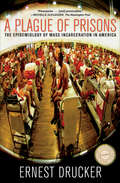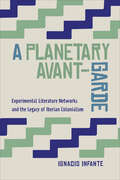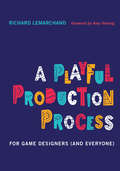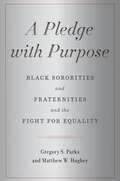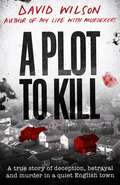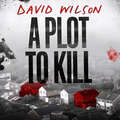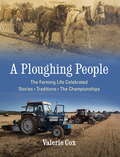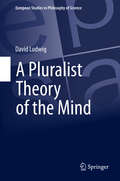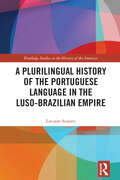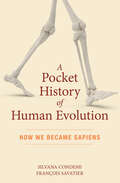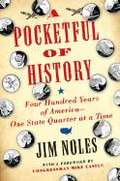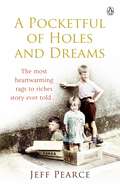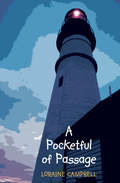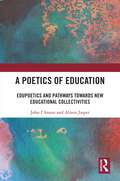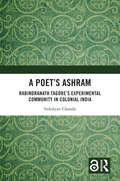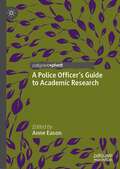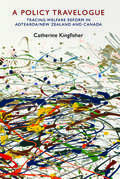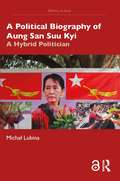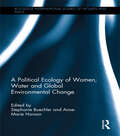- Table View
- List View
A Place of Our Own: Six Spaces That Shaped Queer Women's Culture - 'An inspiring celebration of lesbian camaraderie, activism and fun' (Sarah Waters)
by June ThomasLesbians are a people without a home. Perhaps that's why the ones we make for ourselves are so important.A highly readable cultural history of queer women's lives in the second half of the twentieth century, told through six iconic spaces'An inspiring celebration of lesbian camaraderie, activism and fun' SARAH WATERS'A cracking read, and a reminder of what shaped where we are now' VAL MCDERMID 'Riveting; indispensable; and suffused with a humane warmth' ALISON BECHDEL'A must-have for any queer bookshelf' TEGAN QUINFor as long as queer women have existed, they've created gathering grounds where they can be themselves. From the intimate darkness of the lesbian bar to the sweaty camaraderie of the softball field, these spaces aren't a luxury - they're a necessity for queer women defining their identities. Blending memoir, archival research and interviews, journalist June Thomas invites readers into six iconic lesbian spaces over the course of the last sixty years, including the rural commune, the sex toy boutique, the holiday destination and the feminist bookstore. She also illuminates what is gained and lost in the shift from the exclusive, tight-knit women's spaces of the '70s toward today's more inclusive yet more diffuse LGBTQ+ communities.'Pulses with delicious dykes and the spaces we have made for ourselves over the years. I welcome this story' STELLA DUFFY'A wonderfully rangy, conversational, and thoughtful exploration of lesbian geographies' DANIEL LAVERY'Immensely readable . . . A celebration of what was - and can be - built, with all the hurdles and ecstasies' ROSIE GARLAND
A Place of Their Own: Creating the Deaf Community in America
by John Vickrey Van Cleve Barry A. CrouchThe book is an attempt to provide a coherent look at important aspects of the process whereby deaf Americans became the American deaf community.
A Place to Call Home: Immigrant Exclusion and Urban Belonging in New York, Paris, and Barcelona
by Ernesto CastañedaAs immigrants settle in new places, they are faced with endless uncertainties that prevent them from feeling that they belong. From language barriers, to differing social norms, to legal boundaries separating them from established residents, they are constantly navigating shifting and contradictory expectations both to assimilate to their new culture and to honor their native one. In A Place to Call Home, Ernesto Castañeda offers a uniquely comparative portrait of immigrant expectations and experiences. Drawing on fourteen years of ethnographic observation and hundreds of interviews with documented and undocumented immigrants and their children, Castañeda sets out to determine how different locations can aid or disrupt the process of immigrant integration. Focusing on New York City, Paris, and Barcelona—immigration hubs in their respective countries—he compares the experiences of both Latino and North African migrants, and finds that subjective understandings, local contexts, national and regional history, and religious institutions are all factors that profoundly impact the personal journey to belonging.
A Place to Call Home: Women as Agents of Change in Mumbai
by Ramya RamanathAny city is a product of politics and economics, organizations and people. Yet, the life experiences of women uprooted from its poorest quarters seldom inform urban resettlement plans. In this ethnographic field study, Ramya Ramanath, Associate Professor at DePaul University, examines the lives of women displaced by slum clearance and relocated to the largest slum resettlement site in Asia. Through conversations with diverse women of different ages, levels of education, types of employment, marital status, ethnicity, caste, religion, and household make-up, Ramanath recounts how women negotiate a drastic change in environment, from makeshift housing in a park slum to ownership of a high-rise apartment in a posh Mumbai suburb. Each phase of their city lives reflects how women initiate change and disseminate a vision valuable to planners intent on urban and residential transformations. Ramanath urges the concerted engagement of residents in design, development, and evaluation of place-making processes in cities and within their own neighborhoods especially. This book will interest scholars of public policy, women and gender studies, South Asian studies, and urban planning.
A Place to Grow: Women in the American West
by Glenda RileyThese are essays focused on women and the frontier (abbreviated from the Foreword in the book). The Western History in the 1990s has research on western women that is rich, varied, and increasingly sophisticated. But answers to crucial controversies remain elusive. Did the American West offer women a place to grow? Did women find more economic opportunities in the West than elsewhere? Were western women more politically active and effective than their eastern counterparts? Did the West's reputed liberalism and democracy shape the lives of all western women for the better? Or did women of some social classes, races, and ethnic backgrounds face difficulty? I have selected ten essays that I have found especially useful in explaining the nature and importance of these issues. in the classroom as well as for audiences of both colleagues and laypersons. I have rounded out the selection with an essay written especially for this volume and with a large collection of primary documents. The result is a text that addresses these questions and, in the process, reveals both the complexity of research issues and the multiplicity of women's perspectives. These essays discuss and analyze a variety of topics concerning women's lives and experiences in the American West. Interspersed among the essays, the documents not only give the flavor of women's attitudes and reactions to issues of the day, but also demonstrate the importance of women's own words as historical evidence. The selections presented here, which explore gender, race, class, region, and other variables, are arranged in five sections: 1) stereotypes of western women, 2) women and westward trails, 3) women migrants and Native Americans, 4) women and work, and 5) women, adaptation, and change. Almost every type of western woman is represented, although archivists and scholars have only recently begun to retrieve other ethnic groups.
A Place to Live in Peace: Free People of Color in West Feliciana Parish, Louisiana
by Evelyn L. WilsonA Place to Live in Peace: Free People of Color in West Feliciana Parish, Louisiana reveals a community where free people of color lived harmoniously with white people even as slavery persisted. Author Evelyn L. Wilson documents the presence, land ownership, business development, and personal relationships of free people of color in this Louisiana parish. In the last decade before the Civil War, tensions over slavery in West Feliciana Parish, Louisiana, led to the separation of free people of color from their white counterparts. But until the 1850s, free people of color had lived and thrived there. The free people of color who inhabited West Feliciana Parish were not a settled population with a common background or a long history of freedom. Some entered the parish already free, others purchased their freedom, while others had been freed by slaveholders for differing reasons. Regardless of how they arrived in the parish, they found themselves in a community that valued the talents and skills they had to offer without regard to the color of their skin. These individuals were integrated into their community, lived among white neighbors, provided needed services, and owned successful businesses. Using extensive archival research, including court records, government documents, legal citations, and periodicals, Wilson interprets the lives, experiences, and contributions of free people of color in West Feliciana Parish. The integral role that these free people of color played in the parish complicates common understandings of the antebellum South.
A Plague of Prisons: The Epidemiology of Mass Incarceration in America
by Ernest DruckerThe public health expert and prison reform activist offers &“meticulous analysis&” on our criminal justice system and the plague of American incarceration (The Washington Post). An internationally recognized public health scholar, Ernest Drucker uses the tools of epidemiology to demonstrate that incarceration in the United States has become an epidemic—a plague upon our body politic. He argues that imprisonment, originally conceived as a response to the crimes of individuals, has become &“mass incarceration&”: a destabilizing force that damages the very social structures that prevent crime. Drucker tracks the phenomenon of mass incarceration using basic public health concepts—&“incidence and prevalence,&” &“outbreaks,&” &“contagion,&” &“transmission,&” &“potential years of life lost.&” The resulting analysis demonstrates that our unprecedented rates of incarceration have the contagious and self-perpetuating features of the plagues of previous centuries. Sure to provoke debate and shift the paradigm of how we think about punishment, A Plague of Prisons offers a novel perspective on criminal justice in twenty-first-century America. &“How did America&’s addiction to prisons and mass incarceration get its start and how did it spread from state to state? Of the many attempts to answer this question, none make as much sense as the explanation found in [this] book.&” —The Philadelphia Inquirer
A Planetary Avant-Garde: Experimental Literature Networks and the Legacy of Iberian Colonialism (Toronto Iberic #81)
by Ignacio InfanteA Planetary Avant-Garde explores how experimental poetics and literature networks have aesthetically and politically responded to the legacy of Iberian colonialism across the world. The book examines avant-garde responses to Spanish and Portuguese imperialism across Europe, Latin America, West Africa, and Southeast Asia between 1909 and 1929. Ignacio Infante critically traces the hegemony and resistance to the colonial regimes of Spain and Portugal across particular avant-garde networks, expanding our understanding of Western colonial and imperial ideologies of the early twentieth century. The book extends geopolitical dimensions of the historical avant-garde into a wider transnational and planetary framework, including divergent experiences of modernity, forms of experimental poetics, and understandings of history. It sheds light on topics, such as the relation between Portuguese futurism and European colonialism in West Africa, the Latin American avant-garde’s critique of European historicism, the development of Brazilian modernism in relation to the European avant-garde, the comparative poetics of modernism in the Philippines, and the 1929 Barcelona World’s Fair. Grounded in extensive archival research, A Planetary Avant-Garde provides a new understanding of the historical avant-garde from a global and multilingual perspective.
A Playful Production Process: For Game Designers (and Everyone)
by Richard LemarchandHow to achieve a happier and healthier game design process by connecting the creative aspects of game design with techniques for effective project management. This book teaches game designers, aspiring game developers, and game design students how to take a digital game project from start to finish—from conceptualizing and designing to building, playtesting, and iterating—while avoiding the uncontrolled overwork known among developers as &“crunch.&” Written by a legendary game designer, A Playful Production Process outlines a process that connects the creative aspects of game design with proven techniques for effective project management. The book outlines four project phases—ideation, preproduction, full production, and post-production—that give designers and developers the milestones they need to advance from the first glimmerings of an idea to a finished game.
A Pledge with Purpose: Black Sororities and Fraternities and the Fight for Equality
by Matthew W. Hughey Gregory S. ParksReveals the historical and political significance of “The Divine Nine”—the Black Greek Letter OrganizationsIn 1905, Henry Arthur Callis began his studies at Cornell University. Despite their academic pedigrees, Callis and his fellow African American students were ostracized by the majority-white student body, and so in 1906, Callis and some of his peers started the first, intercollegiate Black Greek Letter Organization (BGLO), Alpha Phi Alpha. Since their founding, BGLOs have not only served to solidify bonds among many African American college students, they have also imbued them with a sense of purpose and a commitment to racial uplift—the endeavor to help Black Americans reach socio-economic equality. A Pledge with Purpose explores the arc of these unique, important, and relevant social institutions. Gregory S. Parks and Matthew W. Hughey uncover how BGLOs were shaped by, and labored to transform, the changing social, political, and cultural landscape of Black America from the era of the Harlem Renaissance to the civil rights movement. Alpha Phi Alpha boasts such members as Thurgood Marshall, civil rights lawyer and US Supreme Court Justice, and Dr. Charles Wesley, noted historian and college president. Delta Sigma Theta members include Bethune-Cookman College founder Mary McLeod Bethune and women’s rights activist Dorothy Height. Huey P. Newton, co-founder of the Black Panther Party, who left an indelible mark on the civil rights movement, was a member of Phi Beta Sigma, while Dr. Mae Jemison, a celebrated engineer and astronaut, belonged to Alpha Kappa Alpha. Through such individuals, Parks and Hughey demonstrate the ways that BGLO members have long been at the forefront of innovation, activism, and scholarship.In its examination of the history of these important organizations, A Pledge with Purpose serves as a critical reflection of both the collective African American racial struggle and the various strategies of Black Americans in their great—and unfinished—march toward freedom and equality.
A Plot to Kill: A true story of deception, betrayal and murder in a quiet English town
by David Wilson'[A] real-life Midsomer Murder ... it's chilling, but [David Wilson's] explanation of how a psychopath thinks is masterly' The TimesThe shocking story of the murder of Peter Farquhar and the churchwarden who groomed and betrayed him, from the UK's leading criminologist David WilsonTwo deaths.Three doors apart.An unsuspecting community about to realise there's a killer in their midst. In October 2015, Peter Farquhar was found dead in his house in Maids Moreton, lying on the sofa next to a bottle of whisky. An inquest was made, and Peter's death was quickly ruled an accident.But after the death of another elderly neighbour, the dreadful truth began to emerge: both victims had been groomed, seduced and mentally tortured by a young man, Benjamin Field, who had used his position of power in the community to target and exploit the elderly.He almost got away with it. Very little shocks criminologist David Wilson, but this extraordinary case in his sleepy hometown astounded him. Wilson felt duty-bound to follow its trail, discovering how his tightknit community failed to intervene, how a psychopath went undetected for years, and how Peter unwittingly supplied the blueprint for his own murder.A Plot to Kill is a chilling, gripping account of a callous murder in the heart of middle England, a fight for justice, and a revealing insight into the mind of a killer.
A Plot to Kill: The notorious killing of Peter Farquhar, a story of deception and betrayal that shocked a quiet English town
by David Wilson'[A] real-life Midsomer Murder ... it's chilling, but [David Wilson's] explanation of how a psychopath thinks is masterly' The TimesThe shocking story of the murder of Peter Farquhar and the churchwarden who groomed and betrayed him, from the UK's leading criminologist David WilsonTwo deaths.Three doors apart.An unsuspecting community about to realise there's a killer in their midst. In October 2015, Peter Farquhar was found dead in his house in Maids Moreton, lying on the sofa next to a bottle of whisky. An inquest was made, and Peter's death was quickly ruled an accident.But after the death of another elderly neighbour, the dreadful truth began to emerge: both victims had been groomed, seduced and mentally tortured by a young man, Benjamin Field, who had used his position of power in the community to target and exploit the elderly.He almost got away with it. Very little shocks criminologist David Wilson, but this extraordinary case in his sleepy hometown astounded him. Wilson felt duty-bound to follow its trail, discovering how his tightknit community failed to intervene, how a psychopath went undetected for years, and how Peter unwittingly supplied the blueprint for his own murder.A Plot to Kill is a chilling, gripping account of a callous murder in the heart of middle England, a fight for justice, and a revealing insight into the mind of a killer.
A Ploughing People: The Farming Life Celebrated - Stories, Traditions, The Championships
by Valerie CoxJourney into the heartland of rural Ireland, in words and images, from the 1930s to today. Meet the characters behind the Ploughing Championships, past and present. Witness the traditions and stories from a changing way of life, where community spirit remains central, and the plough keeps turning the sod, year on year . . .Since the early 1930s, The National Ploughing Championships has occupied a special place in the heart of ruralIrish life, when people gather from every corner of the country to show off their skills and engage in sport, fun and business. Here, for the first time, the magic of the Ploughing is captured in word and image. We follow Valerie Cox as she journeys around Ireland to meet the people who make this national institution great, and record the stories of what the ploughing means to them, whether it's vintage tractors, a pair of Clydesdales or a plough handed down from a grandfather.Among others, we meet three-time world champion Martin Keogh, take an unforgettable trip to Thady Kelleher country in East Cork, and are enchanted by the first even Queen of the Plough Anna Mai Donegan, who won her crown in 1955.This beautiful book also provides a record of a landscape that may bear little resemblance to that of the 1930s but, in important ways - of family, community and the nod and wink of the business deal - is little changed. A gift, a keepsake, A Ploughing People is a unique celebration of the best of Irish life.
A Pluralist Theory of the Mind (European Studies in Philosophy of Science #2)
by David LudwigThis book challenges common debates in philosophy of mind by questioning the framework of placement problems in contemporary metaphysics. The author argues that placement problems arise when exactly one fundamental ontology serves as the base for all entities, and will propose a pluralist alternative that takes the diversity of our conceptual resources and ontologies seriously. This general pluralist account is applied to issues in philosophy of mind to argue that contemporary debates about the mind-body problem are built on this problematic framework of placement problems. The starting point is the plurality of ontologies in scientific practice. Not only can we describe the world in terms of physical, biological, or psychological ontologies, but any serious engagement with scientific ontologies will identify more specific ontologies in each domain. For example, there is not one unified ontology for biology, but rather a diversity of scientific specializations with different ontological needs. Based on this account of scientific practice the author argues that there is no reason to assume that ontological unification must be possible everywhere. Without this ideal, the scope of ontological unification turns out to be an open empirical question and there is no need to present unification failures as philosophically puzzling "placement problems".
A Plurilingual History of the Portuguese Language in the Luso-Brazilian Empire
by Luciane ScaratoThis book investigates the diverse ways in which the Portuguese language expanded in Brazil, despite the multilingual landscape that predominated before and after the arrival of the Europeans and the African diaspora. Challenging the assumption that the prevalence of Portuguese was a natural consequence and foregone conclusion of colonisation, the book argues that the language’s expansion was as much a result of state intervention as of individual agency. The growth of the Portuguese language was a tumultuous process that mirrored the power relations and conflicts between Amerindian, European, African, and mestizo actors who shaped, standardised, and promoted the language within and beyond state institutions. Knowing Portuguese became an identification sign of being Brazilian. However, a significant number of languages disappeared along the way, and the book highlights that virtual language homogeneity does not imply social equality. Portuguese’s variants place speakers on different social levels that justify domination and inequality. This research tells the history of a victorious language and other languages that left their mark on Brazilian Portuguese. A Plurilingual History of the Portuguese Language in the Luso-Brazilian Empire is a useful resource for scholars interested in the history and standardisation of languages, Portuguese and Brazilian history, and the impacts of colonisation.
A Pocket History of Human Evolution: How We Became Sapiens
by Silvana Condemi François SavatierWhy aren’t we more like other apes? How did we win the evolutionary race? Find out how “wise” Homo sapiens really are. Prehistory has never been more exciting: New discoveries are overturning long-held theories left and right. Stone tools in Australia date back 65,000 years—a time when, we once thought, the first Sapiens had barely left Africa. DNA sequencing has unearthed a new hominid group—the Denisovans—and confirmed that crossbreeding with them (and Neanderthals) made Homo sapiens who we are today. A Pocket History of Human Evolution brings us up-to-date on the exploits of all our ancient relatives. Paleoanthropologist Silvana Condemi and science journalist François Savatier consider what accelerated our evolution: Was it tools, our “large” brains, language, empathy, or something else entirely? And why are we the sole survivors among many early bipedal humans? Their conclusions reveal the various ways ancient humans live on today—from gossip as modern “grooming” to our gendered division of labor—and what the future might hold for our strange and unique species.
A Pocketful of History: Four Hundred Years of America One State Quarter at a Time
by Jim NolesA HISTORY-RICH LOOK at the coins in your pocket-the fifty state quarters-and what they tell us about "changing" America Our past is all around us-even in the spare change jangling in your purse or pocket. For the past decade, the United States Mint has offered America a pocketful of history through its popular 50 State Quarters® Program. When the final quarters are released, thousands of us will have collected these commemorative coins, one for each state and territory in the Union. But what can we learn about our country's stories and lore from a mere $12.50 in state quarters? Jim Noles's fascinating book, A Pocketful of History, looks at each quarter in turn to answer these curious questions . . . * Who is Caesar Rodney and why is he riding a horse on Delaware's quarter? * What is the real history behind Abraham Lincoln's political career in his home state Illinois? * What happened to New Hampshire's symbol, the "Old Man in the Mountain," three years after its quarter was minted? * What famous racecourse is memorialized on the quarter from the state known as the "Crossroads of America"? Congress recently extended the program to include six additional quarters for Washington, D.C., and the affiliated territories of the United States, to be released in 2009. Why is Pennsylvania known a the Keystone State? Why did California choose to honor preservationist John Muir rather than a mining '49er? . . . and many, many more. A Pocketful of History tells the story behind each state's quarter-how each state chose its design; what is important about the people, scenes, and themes depicted on the coins; and what the collection tells us about ourselves. It's an entertaining and enlightening journey through four hundred years of America in twenty-five-cent doses.
A Pocketful of Holes and Dreams
by Jeff PearceThe poor boy who made his fortune . . . not just once but twice.Little Jeff Pearce grew up in a post-war Liverpool slum. His father lived the life of an affluent gentleman whilst his mother was forced to steal bread to feed her starving children. Life was tough and from the moment Jeff could walk he learned to go door to door, begging rags from the rich, which he sold down the markets. Leaving school at the age of fourteen, he embarked on an extraordinary journey, and found himself, before the age of thirty, a millionaire.Then, after a cruel twist of fate left him penniless, he, his wife and children were forced out of their beautiful home . . .With nothing but holes in his pockets, Jeff had no alternative but to go back down the markets and start all over again. Did he still have what it took? Could he really get back everything he had lost?A Pocketful of Holes and Dreams is the heartwarming true story of a little boy who had nothing but gained everything and proof that, sometimes, rags can be turned into riches . . .______________'An inspirational tale of hard work and determination' 5* Reader review 'I just loved this book from the first chapter - I was gripped' 5* Reader review
A Pocketful of Passage: Pocketful Of Passage
by Loraine CampbellA fictionalized account of the life of a lighthouse keeper's daughter and her family on the Great Lakes in the 1940s, written for young readers ages 8 and up.
A Poetics of Education: Edupoetics and Pathways Towards New Educational Collectivities
by John I’Anson Alison JasperAt a time when education is routinely – and problematically – translated into the discourse of learning and teaching to serve a series of instrumental imperatives, the question of what we mean by education is raised with renewed urgency. This book looks beyond present horizons to imagine education anew. It considers ways of theorising education that acknowledge the complexity of its genealogy, empirical practice, and imbrication within regimes of governance, in the light of education’s orientation to both the already actualised and the new and unprecedented. A specifically educational milieu is characterised by the kinds of existential movements and negotiations to which this gives rise, together with a language and grammar for their articulation, that points to their urgency and significance.A poetics of education – an edupoetics – is thus a considered response to this exigency.Through engaging a variety of felicitous tropes – that include the sea and its navigation (Serres), opacity (Glissant), desire (ʿAṭṭār), precarity (Butler), gift (Manning), and chiasma (Merleau-Ponty), it becomes possible to articulate an educational image of thinking that, in welcoming the new and unforeseen, promotes a radical hospitality to difference. The chapters engage a variety of writers to explore how an edupoetics might intersect with a series of specific educational scenes and concerns that include, for example, the qualities of ‘good’ research that opens to the other-than-human, the complexities of doctoral supervision, the pedagogics of gender, and the gift of neurodiversity. This book articulates an alternative educational imaginary – an edupoetics – that gestures towards collectivities gathered around matters of intense concern. It will be relevant to scholars in the humanities and social sciences interested in educational theory and the philosophy of education.
A Poet’s Ashram: Rabindranath Tagore’s Experimental Community in Colonial India
by Sukalyan ChandaThe remarkably creative life Rabindranath Tagore (1861–1941) lived has long been an area of scholarly enquiry. Yet, surprisingly, his role as the founder of an experimental ashram community remains unexplored. A Poet’s Ashram retrieves his idea of his ashram through an exploration of his writings on the institutions he built.The ashram community Tagore endeavoured to create in Santiniketan during the period 1901–1941 was his response to the question of modernity. Through his effort to reinvent the ancient Indian ideal of the ashram, he articulated his idea of a mode of collective living that was meant to be grounded in a set of ethical values derived from India’s civilizational inheritance. This book traces the history of how his ashram school evolved into a community that practised egalitarianism, inclusiveness and creativity through its daily existence. It explores a range of nineteenth- and twentieth-century discourses and Tagore’s engagement with them in order to situate that idea within its historical context, a critical juncture in the history of modern India and the world. This book’s reading of his project unravels its anti-colonial underpinnings and the commonalities it shared with some of the other similar experimental communities that challenged illiberal ideologies and power relations during the early twentieth century.Meticulously researched and perceptively written, this book will be of interest to students and researchers of history, political science, culture studies and postcolonial studies. It will also be of interest to educationists, educators and those interested in colonial modernity, modern Indian history, philosophy of education, institution building, peace, inclusivity and sustainability.
A Police Officer’s Guide to Academic Research
by Anne EasonThis book highlights how the practical skills of the police officer can be transferred into the realm of academic research and support them in becoming part of the evidence-based policing movement. It starts by exploring the professionalisation of the police service through higher education accreditation and the different methodologies of social research practice. Using operational comparisons and a little humour, it guides the reader through the swamp of concepts and processes, such as ethical approval, research paradigms and data gathering and analysis. It then takes them on a journey of reflection and reflexivity, challenging their own perspective on policing and working within the wider criminal justice sector and how they can make a valuable contribution to the development of policing practice.
A Policy Travelogue: Tracing Welfare Reform in Aotearoa/New Zealand and Canada
by Catherine KingfisherAn ethnography of the development and travel of the New Zealand model of neoliberal welfare reform, this study explores the social life of policy, which is one of process, motion, and change. Different actors, including not only policy élites but also providers and recipients, engage with it in light of their own resources and knowledge. Drawing on two analytic frameworks of the contemporary anthropology of policy-translation and assemblage-Kingfisher situates policy as an artifact and architect of cultural meaning, as well as a site of power struggles. All points of engagement with policy are approached as sites of policy production that serve to transform it as well as reproduce it. As such, A Policy Travelogue provides an antidote to theorizations of policy as a-cultural, rational, and straightforwardly technical.
A Political Biography of Aung San Suu Kyi: A Hybrid Politician (Politics in Asia)
by Michał LubinaThis book is the first political biography of Aung San Suu Kyi covering both her years in opposition and all her years in power from 2016 onwards. It offers a new interpretation of Aung San Suu Kyi by presenting a balanced and thorough account of Suu Kyi’s policies. In the last 30 years there has not been a person in global politics who has risen so high and fallen so low – and so quickly – as Aung San Suu Kyi. Using postcolonial theory and introducing the new concept of `a hybrid politician', this book explains apparent inconsistencies of Suu Kyi’s agenda. It demonstrates that Suu Kyi considers herself a democrat and yet, rules autocratically. Immersed in her country’s tradition of policymaking, she has at the same time been influenced by foreign concepts, both Western and Asian. Drawing on first-hand research, including talks with Suu Kyi, conversations with her supporters and rivals, observations of Suu Kyi’s behaviour during intergovernmental talks as well as an extensive number of sources and fieldwork in Myanmar, the author argues that Suu Kyi’s case shows both the strengths and limits of hybridity. This brings Suu Kyi priceless political assets such as visibility, recognition and support while proving that such a model of leadership has its restrictions. A timely biography of the Nobel Peace Prize Laureate as she appears at the International Court of Justice to defend her country against charges of genocide committed against the Rohingya Muslim minority, this book will be of interest to students and researchers of Myanmar politics, Southeast Asian politics, Asian politics, Political Science more generally, Postcolonial Studies, Cultural Studies and Leadership Studies.
A Political Ecology of Women, Water and Global Environmental Change (Routledge International Studies of Women and Place)
by Stephanie Buechler Anne-Marie S. HansonThis edited volume explores how a feminist political ecology framework can bring fresh insights to the study of rural and urban livelihoods dependent on vulnerable rivers, lakes, watersheds, wetlands and coastal environments. Bringing together political ecologists and feminist scholars from multiple disciplines, the book develops solution-oriented advances to theory, policy and planning to tackle the complexity of these global environmental changes. Using applied research on the contemporary management of groundwater, springs, rivers, lakes, watersheds and coastal wetlands in Central and South Asia, Northern, Central and Southern Africa, and South and North America, the authors draw on a variety of methodological perspectives and new theoretical approaches to demonstrate the importance of considering multiple layers of social difference as produced by and central to the effective governance and local management of water resources. This unique collection employs a unifying feminist political ecology framework that emphasizes the ways that gender interacts with other social and geographical locations of water resource users. In doing so, the book further questions the normative gender discourses that underlie policies and practices surrounding rural and urban water management and climate change, water pollution, large-scale development and dams, water for crop and livestock production and processing, resource knowledge and expertise, and critical livelihood studies. This book will be of interest to students and scholars of environmental studies, development studies, feminist and environmental geography, anthropology, sociology, environmental philosophy, public policy, planning, media studies, Latin American and other area studies, as well as women’s and gender studies.
